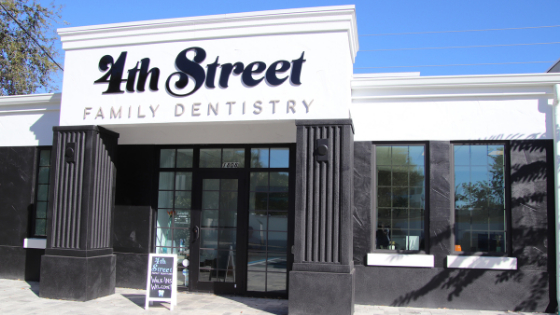When To See The Emergency Dentist
How can you know whether your aches and pains are normal or if you have a serious toothache to worry about? Your St. Petersburg dentist states, if left unaddressed, those apparently little issues may soon escalate into a toothache you’ll never forget. Here are some signs to know when to see the emergency dentist 33704.
Signs You Need Emergency Dental Care
Toothaches occur in a variety of forms, sizes, and pain levels. Knowing what constitutes an emergency and what does not might help you save money over time. Putting off your aches and pains might sometimes lead to a worse dental issue down the road. Because your body is so interconnected, pinpointing the exact reason for your dental pain might be challenging. A proper diagnosis from Dr. Brian Leeson is the most reliable approach to get quick toothache relief and maybe avoid a more serious problem.
Loose Tooth
You should never suffer loss of teeth as an adult. If you’ve noticed that your teeth are becoming loose, there are a few factors that might be causing this. Patients may have severe pain as a result of this, and you should seek emergency dentist St. Pete right away. Whether it was a sports-related injury or a traffic accident, you’ll want to make sure your teeth are healthy and robust. Even if your teeth seem to be in good shape, you should see an emergency dentist rule out any nerve or jaw injury. While nerve or jaw injury may not show symptoms right away, it is critical to get treatment before your situation worsens. It’s better to be safe than sorry in this circumstance, as it is in most.
Toothache
The intensity of your toothache may indicate that you should see your dentist for fast toothache treatment. If your toothache is minimal, there are a few home remedies that you might try. If not, you should make an appointment with your dentist as soon as possible, since toothaches may be caused by a variety of factors. Treatment will be determined by the underlying cause, thus accurate diagnosis is essential for long-term toothache treatment.
For patients, preventing a toothache in the first place is desirable, but we understand that this isn’t always possible. Habits and lifestyle choices may get in the way, and before you realize it, you’re dealing with a toothache. See your dentist if your toothache has become more severe and the pain persists following sensitivity to warmth or touch.
Swollen or Aching Gums
While seeing your gums bleed after flossing isn’t ‘normal,’ it might be an indication of gingivitis or early gum disease. However, if your gums are bleeding excessively, often, and even leave your gums sore, there are several red flags to be aware of. These are some of the most frequent gum disease symptoms.
If your gums are hurting or swollen, though, your dentist will need to check them to see what’s wrong. Early detection of gum disease is critical for maintaining the health and integrity of your gums and teeth. Untreated symptoms of gum disease, in particular, may progress to the point of no return. Because gum disease progresses in phases, some patients will be unable to return their teeth to their previous level of health. Treatment for periodontal disease is totally dependent on where you are in the disease’s progression.
Swollen Jaw
Swelling of the jaw might be an indication of a severe infection. Salivary gland infection is one of them. If you have a swollen jaw, a terrible taste in your mouth, a fever, difficulty breathing, or swallowing, you should get emergency dental help right away. A bacterial infection caused by a blockage in your salivary glands is known as a salivary gland infection. Saliva may get clogged, preventing it from fulfilling its task of breaking down food and washing away microbes. While this form of infection is unusual, you should see a dentist about your symptoms before disregarding them.
Abscess
If you see signs of a tooth abscess, you should contact your dentist right away. An abscessed tooth is a painful infection that develops at the base of the tooth. This is usually caused by an untreated cavity or severe gum disease. It might also be caused by any damage to your teeth, such as a chipped tooth. Fever, a bad taste in your mouth, pus, and swollen glands are all symptoms of an abscessed tooth. The symptoms are similar to those of the majority of other illnesses, and treatment should be sought as soon as possible. An abscessed tooth usually needs surgery to ensure that the infection is adequately drained and treated.
Canker Sore Isn’t Improving
This usually applies to any lesions that have developed in your mouth and are refusing to go away. Canker sores are common, and they may strike anybody at any moment. Only if the sores persist or get infected should this be a matter of worry. If you have an open sore in your mouth that hasn’t healed after two weeks, see your doctor or dentist to determine what’s wrong.
Regular Migraines
Our friend Dr. Eastham, best dentist in Grand Junction CO, states that headaches may be caused by a variety of factors, including stress, illness, or eating something cold too fast. If your headaches have become persistent and recurrent, though, it might be an indication of something more. Because your teeth and skull are linked, any discomfort in your mouth or jaw might cause or contribute to a headache. If you grind your teeth on a regular basis, you may have bruxism. Patients who grind their teeth on a regular basis sometimes suffer from headaches. If you believe this is the case, see your dentist about any additional bruxism warning symptoms, such as worn down tooth enamel or increased tooth sensitivity. Wearing a mouth guard at night might occasionally suffice as treatment.
Numb Tooth
If you had a terrible toothache and then suddenly lost all sensation in your tooth, it might be an indication that the infection has progressed to the root. A tooth that is completely devoid of sensation is never a good indication. It’s possible that an abscess has reached your root, where your nerves reside, necessitating a root canal. Keep a watchful eye on your toothaches, since they might signify a significant dental problem that requires immediate treatment.
It’s important to pay attention to what’s going on in your mouth as a patient. Any major changes might indicate the presence of a larger problem. An emergency dental appointment is usually a smart option if you have a toothache and require toothache treatment.
Make an appointment with our office today if you have any of these symptoms.





